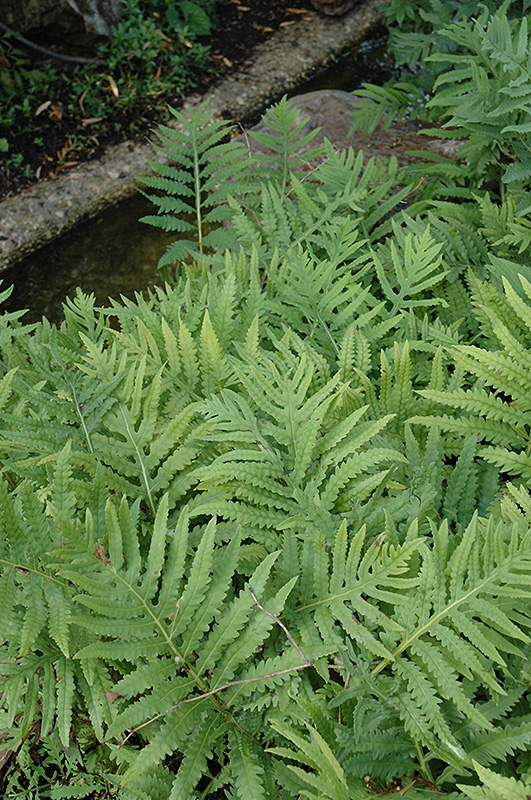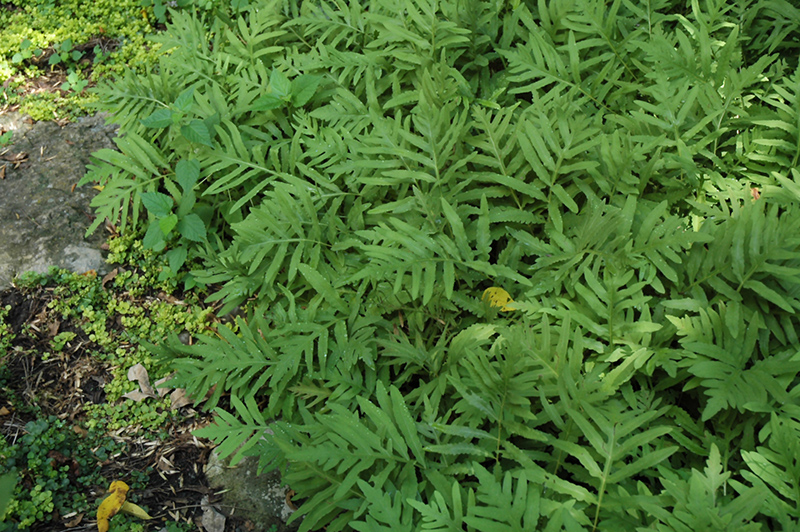Height: 24 inches
Spread: 24 inches
Sunlight:
![]()
![]()
Hardiness Zone: 2b
Other Names: Bead Fern
Description:
Touch this plant and the tender leaflets close, hence the the name; this ferny gem is readily propagated by spores living in large colonies, however it is short lived in each location
Ornamental Features
Sensitive Fern is primarily valued in the garden for its ornamental upright and spreading habit of growth. Its serrated ferny bipinnately compound leaves remain light green in color throughout the season.
Landscape Attributes
Sensitive Fern is an herbaceous fern with an upright spreading habit of growth. Its relatively fine texture sets it apart from other garden plants with less refined foliage.
This is a high maintenance plant that will require regular care and upkeep, and is best cleaned up in early spring before it resumes active growth for the season. Gardeners should be aware of the following characteristic(s) that may warrant special consideration;
- Invasive
Sensitive Fern is recommended for the following landscape applications;
- Groundcover
- Naturalizing And Woodland Gardens
- Bog Gardens
Planting & Growing
Sensitive Fern will grow to be about 24 inches tall at maturity, with a spread of 24 inches. It grows at a fast rate, and under ideal conditions can be expected to live for approximately 10 years. As an herbaceous perennial, this plant will usually die back to the crown each winter, and will regrow from the base each spring. Be careful not to disturb the crown in late winter when it may not be readily seen!
This plant does best in partial shade to shade. It prefers to grow in moist to wet soil, and will even tolerate some standing water. It is not particular as to soil type, but has a definite preference for acidic soils. It is somewhat tolerant of urban pollution. Consider applying a thick mulch around the root zone over the growing season to conserve soil moisture. This species is native to parts of North America, and parts of it are known to be toxic to humans and animals, so care should be exercised in planting it around children and pets. It can be propagated by division.








